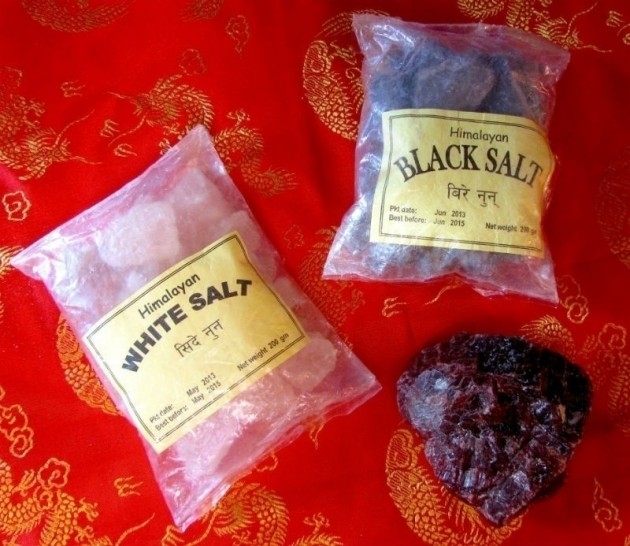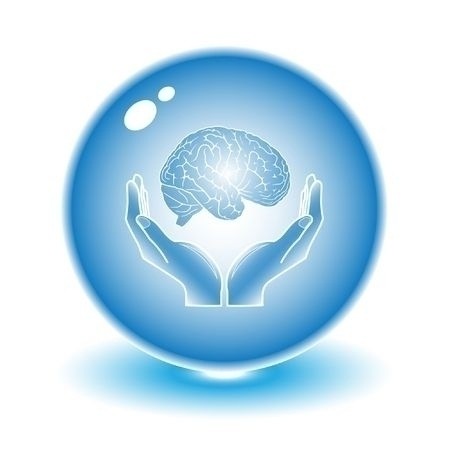Crohn's disease
Crohn's disease (CD) is a chronic condition characterized by patchy areas of inflammation and ulcers (open sores) along the innermost layer of the digestive tract. Such lesions can develop anywhere from the mouth to anus, but the majority of cases involve the small intestine or the first part of the large intestine. Between these patches of inflammation and ulceration there remain stretches of normal, healthy tissue.
CD is closely related to a similar condition known as ulcerative colitis (UC). Both CD and UC are considered inflammatory bowel diseases (IBD). CD affects between 2 and 7 out of 100,000 people and researchers believe that these numbers are growing. CD develops mostly between the ages of 15 and 40, although children and older adults may also develop the condition. People of Jewish heritage are up to six times more likely to develop CD than are people in the general population. Although medication and strict diets can reduce the inflammation of CD, most people with the condition will require surgery to remove part of the digestive tract at some point in their lives. Unfortunately, however, surgery does not completely cure or eradicate the disease.
Ulcerative colitis
Ulcerative colitis (UC) is a chronic disease that causes inflammation and ulcers (open sores) in the innermost layers of the large intestine. UC is an inflammatory bowel disease (IBD), the general name for diseases that cause inflammation in the intestines. In UC, swelling typically occurs in the rectum and lower colon, but the inflammation can spread throughout the entire colon. The ulcers bleed and produce pus and mucus, and the inflammation causes the colon to empty frequently, resulting in diarrhea.
UC is a rare, but serious disease that affects 50 out of every 100,000 people in the United States. Although the condition most commonly affects those between the ages of 15 and 35, children and older adults may also develop the disease. UC occurs five times more frequently in those with a Jewish heritage than it does in the general population. Although most people with UC can be successfully treated without surgery, roughly 25% will need a colectomy (surgical removal of the colon).
Irritable Bowel Syndrome
Irritable bowel syndrome (IBS) occurs when muscles in your intestines contract faster or slower than normal. This
causes pain, cramping, gassiness, sudden bouts of diarrhea, and constipation.
There are two types of IBS. People who suffer from spastic colon IBS experience constipation, diarrhea, or both, and often have pain after eating. Painless diarrhea IBS involves the sudden onset of diarrhea during or after meals, or upon waking. Between 10 - 20% of the population has IBS at some time. The syndrome often starts in adolescents
or young adults. It affects almost twice as many women as men, and is often associated with stress.
Celiac Disease
Celiac disease, also called celiac sprue, is an inherited disease that damages the small intestine and interferes with digestion. People with this disease cannot tolerate a protein called gluten, and as a result, they have trouble absorbing nutrients from food. Gluten is found in wheat, barley, rye, and possibly oat products. Some vitamins and medicines also contain gluten.
The small intestine is lined with fingerlike projections called villi, which help absorb nutrients. In celiac disease, these villi become flattened, so they don't work as well and the person becomes malnourished.
Causes
Researchers don't know the exact cause of celiac disease. Once thought rare, recent research suggests that an estimated 1 of every 133 Americans has celiac disease. However, in the United States, only a small fraction of people living with the disease are diagnosed.
People who have a family history of celiac disease are at greater risk for developing the condition. It is most common in Caucasians and those of European ancestry. Women are affected more commonly than men.
Comprehensive GI Restoration ( R)
Removing offending substances from the diet. Food allergens and other materials that negatively influence the intestinal environment can cause localized irritation or trigger the release of damaging chemicals into general circulation, affection other tissues and organs.
Inflammatory Bowel
Replacing digestive enzymes and stomach acid where necessary. Digestive factors and enzymes facilitate the
breakdown of food. An insufficiency of these compounds is very common, especially as we age, which inhibits optimal digestion and utilization of nutrients, as well as the elimination of waste.
Reinoculating the bowel with pre- and probiotics. Reintroducing health-promoting, "friendly" bacteria such as Lactobacillus acidophilus NCFM® helps maintain a desirable balance of GI microflora. This balance is critical to intestinal tissue (mucosal) health, immune function, intestinal barrier function, and digestion.
Regenerating the gastrointestinal mucosa through proper nutritional support. Regeneration of GI mucosal cells
is necessary whenever there has been a loss of integrity of the GI mucosal structure or function, as may be caused by any GI insult.
Suggested Nutritional Supplementation
Core Nutritional Support Protocol
- UltraInflamX® Plus 360 - 2 scoops twice daily
Multi-mechanistic support with key nutrients, phytonutrients, and selective kinase response modulators (SKRMs) to address underlying inflammation.
- Follow either the Modified Elimination Diet or the Anti-Inflammatory Diet
- LactoFlamXTM - 1 capsule daily
LactoFlamX features L. plantarum 299V - a strain-identified probiotic that has been specifically shown to support the integrity and healthy function of the muscosal lining.
- EPA-DHA 6:1TM Enteric Coated - 2 softgels three times daily.
EPA-DHA 6:1 Enteric Coated omega 3 fatty acids providing a ratio appropriate for patients with chronic inflammatory conditions.
|
Vitamin D3 with Isoflavones. Iso D3 is designed to support optimal metabolism of vitamin D to its
active form.
If there is a soy sensitivity use:
|
High potency vitamin D3 - the most bioactive form of supplemental vitamin D.
Additional Nutritional Support Considerations
Gastrointestinal Restoration (4R Program)
- EndefenTM - 1 tsp. three times daily
Endefen is uniquely designed to nutritionally support the overall health and function of the upper gastrointestinal (GI) tract.
- UltraFlora I.B.TM - 1-2 capsules daily
Ultra Flora IB is an enhanced potency probiotic formula designed to help relieve bowel irritation and related functional discomforts by promoting a healthy balance of intestinal microflora.
- Glutagenics® - 2 tsp. three times daily
Glutagenics features three key ingredients-glutamine, deglycyrrhizinized licorice (DGL), and aloe vera-
that comprehensively support the integrity and healthy function of the gastrointestinal lining.
Body composition management
- High BMI - Introduce lower calorie Modified Elimination or Anti-inflammatory Diet
- Low BMI - Introduce higher calorie Modified Elimination or Anti-inflammatory Diet and measure hsCRP
- If hsCRP is greater than 1.5mg/l then increase Kaprex® AI to 2 tablets, three times daily
Insulin resistance and dysglycemia
- MetaglycemXTM - 2 tablets, three times daily
Sex hormone dysregulation
- EstroFactors® - 3 tablets daily.
- Meta I3C® - 2 capsules daily.
- ActiFolate® - 1 tablet, three times daily.
Hepatic detoxification imbalances/Drug or Chemical toxicity
- AdvaClear® - 2 capsules twice daily.
TH1 dominance or chronic allergy
- EstroFactors® or Testralin® - 3 tablets daily.
Impaired biotransformation or hepatic detoxification imbalances
- AdvaClear® - 2 capsules twice daily.
- Silymarin 80 - 3 tablets daily.
Oxidative stress
- Oxygenics® - 2-6 tablets daily.
- Celapro® - 2 softgels daily.
- MetaLipoate® 300 - 1 tablet twice daily.
Vitamin A insufficiency
- Ultra Pure Cod Liver OilTM - 1 tsp, three times daily
Thyroid Support
- Thyrosol® - 1-3 tablets twice daily






